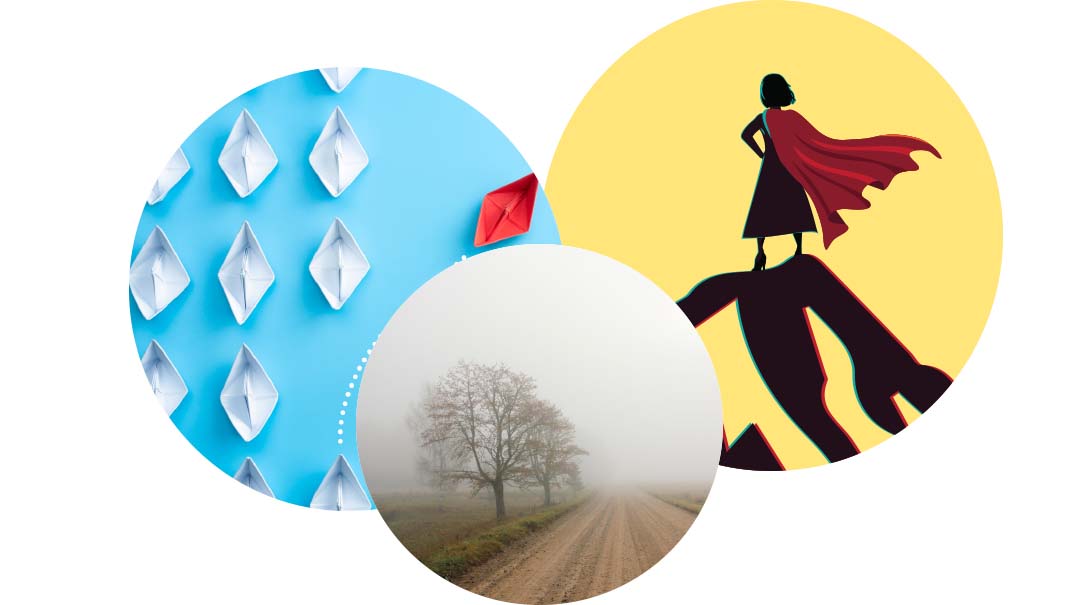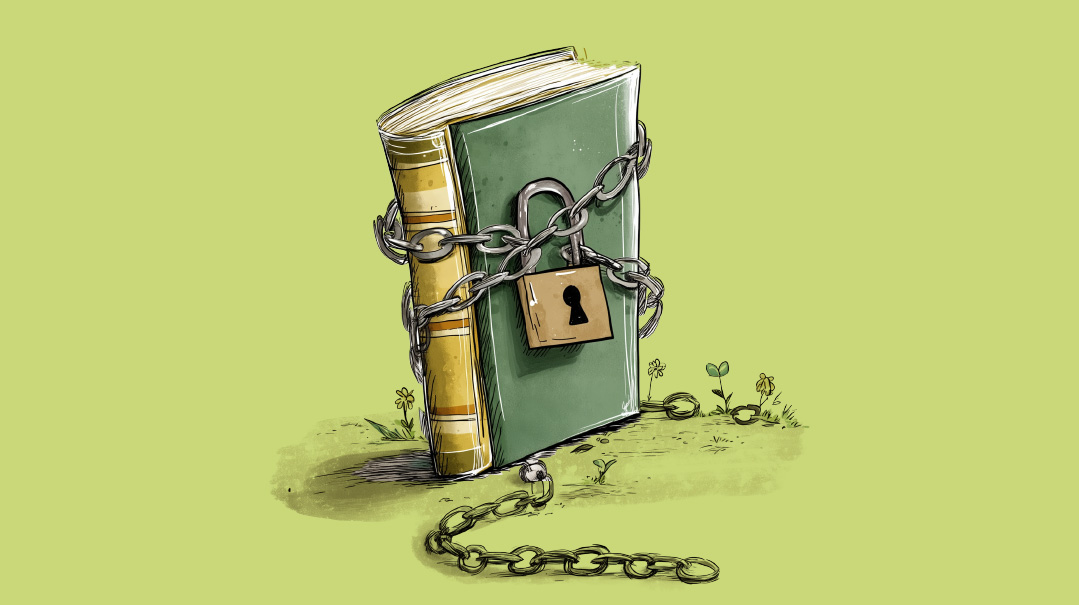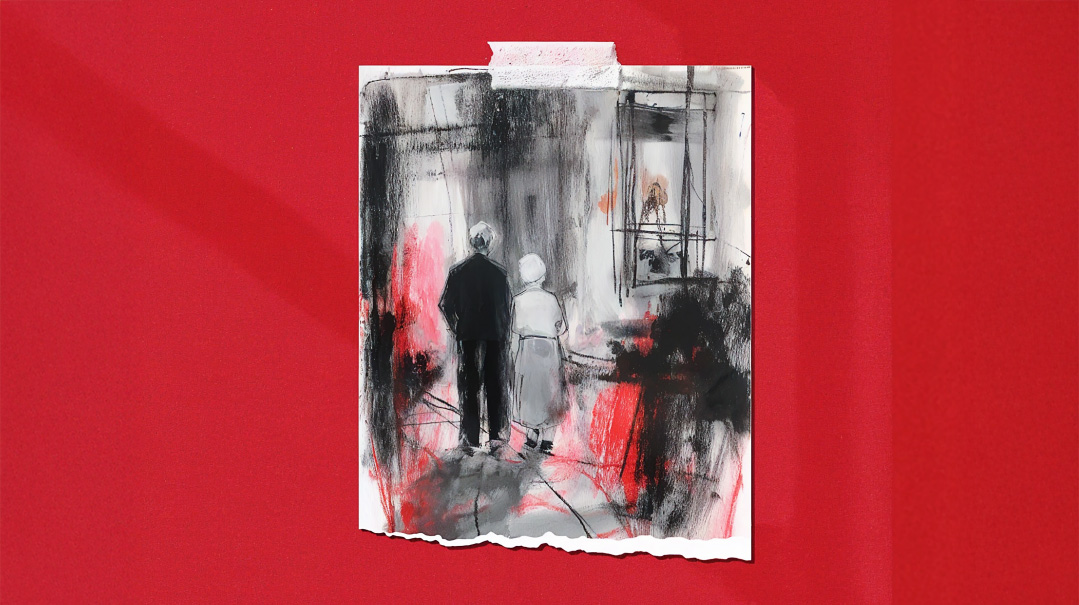Family First Inbox: Issue 758

"Why must every story be measured against one’s self and the feelings they evoke? And why, if a story triggers discomfort in readers, must it be dismissed?"

What’s Our Battle Cry? [Musings / Issue 756]
I’m a working mom with a demanding career, and your narrative about “Raising Superwoman” resonated with me.
For an Orthodox Jewish woman, there is no such thing as “work-life balance,” as the focus is always on our families. There is nothing wrong with takeout or cleaning help or having your spouse do morning routine or bedtime if necessary. Who decided that being home for your kids with warm cookies and a glass of milk for after school is right for everyone? If your family needs the parnassah, perhaps being home and driving car pool is not your responsibility.
The question to ask yourself is, “Am I working for me, or for my family?” There are many stay-at-home mothers who invest less of themselves into their families than some working moms, despite all the time and resources available to them. Why is so much guilt associated with the beautiful and noble chesed of a working wife who helps contribute to the exorbitant finances of a frum household?
We don’t always choose to wear the cape we are given. The question we should be asking ourselves is: When we don our capes and go out to battle, what is our battle cry?
A Proud Superwoman (who often feeds her children cereal for dinner, guilt-free)
Tientsin Memories [Behind the Book / Issue 756]
The Behind the Book column featuring My Sister in China caught my eye, and the mention of Tientsin started bells ringing.
About 35 years ago, I had a small cleaning company. A client had sent me to do some work in Rechavia — payment would be made at a different address. Late in the day, I went to collect. The door was opened by an elderly gent who invited me in. As we walked through his apartment, I was stunned by the abundance of exquisite Chinese artwork lining the whole way to his kitchen. Over a cup of coffee, we chatted.
It seems that Max had weathered the Russian Revolution, going to China, where he became extremely wealthy, and eventually procuring Chinese citizenship and living in the royal city of Tientsin. During the war years, although he was Jewish, he did not have to evacuate to Shanghai. After the war, he witnessed the Communist takeover of China. Around 1950 he was able to relocate to the US, with much of his capital intact, and with his fabulous collection of art. Sometime in the late ’70s or early ’80s, he retired to Jerusalem, where he continued to thrive financially.
After this fascinating schmooze, I said to Max, “Tell me, what’s your real name?”
“Kagan,” he replied.
“You must be a Kohein,” I said.
He shot back rather aggressively, “How do you know?”
I told him Kagan was the Russian/Polish equivalent of Cohen. He was surprised. But the real bombshell was yet to come.
I said, “Max, you might even be a relative of the Chofetz Chaim.”
His comeback: “Who’s he?”
Max had led a most colorful life, yet his Jewish knowledge was sparse. Today we are witnessing a parallel situation: prospering Yidden with very little Jewish knowledge — estranged brothers and sisters we must try to influence.
Steve Rapoport, Telshe Stone
Formerly Clueless [True to Me / Issue 755]
Dear Avigayil Stern,
After reading your story about your time in shidduchim, I feel like someone just turned the light on in my brain. I’m mentally reviewing the experiences I’ve had with friends, family, and acquaintances who are single, wondering if any of the things I’ve said have been as utterly clueless as the people in your life. I’m scared of the answer.
It’s not my fault, I want to broadcast. I didn’t mean anything but good! I love you and want the best for you! But then I think of the well-meaning comments you’ve endured, and I cringe. Who am I to tell someone else what will make them happy? Who am I to determine if someone else has been trying hard enough?
And while baruch Hashem I don’t think I’ve ever told someone they don’t look good enough, I’ve definitely thought it, or even worse, said it about someone else behind their back. I’m not sure when and I why I forgot that Hashem decides who stays single and who gets married, whose life is easy and whose is hard.
Thank you for opening my eyes.
Your Formerly Clueless but Well-Meaning Friend
They Light Up the World [Musings / Issue 754]
I’m writing to Brochie Wolfson’s piece, “Forever Special Children,” about how her adult child with special needs will forever remain a child.
Brochie, as someone who works closely with the special-needs population, I can only nod along in sympathy at the pain you describe. Being the child’s constant caregiver — a title that includes any number of impossible tasks and responsibilities on a daily basis — while simultaneously trying to raise a family, is true mesirus nefesh. The emotional journey of these parents, from immense sadness and grief to hope and acceptance, is something that, as Brochie so eloquently describes, can take a lifetime of inner work.
Which is why I’d like to take this opportunity to try and offer at least some measure of hope to all those heroic moms out there.
To have children meirim es ha’olam baTorah uv’maasim tovim, who light up the world with Torah and good deeds, is the hope of every Jewish mother. When a child is diagnosed with a syndrome that will prevent him from living a “normal,” functional life, the mother must part with so many dreams she had for her child, a realization that shatters a mother’s heart to the core.
But while most of these children will not marry or have children of their own, they can still be meirim es ha’olam. Each and every special child I’ve had the privilege to work with has changed me to the core — in a very good way. The sheer dependence of these children, whether physically or emotionally, forces one to draw upon reserves of inner strength and fortitude one might never have known he possessed. Working with emotionally challenged children has taught me to exercise my compassion and sensitivity muscles. And these children have inspired me. After witnessing an autistic child resolutely, wordlessly tackling his biggest fear head-on, how could I possibly continue on stubbornly clinging to the “I can’t”s of my own life?
I once asked a coworker, “Don’t you feel like these children are here in This World for us, and not the other way around?”
She replied with fervor, “Absolutely!”
So, dear mother of, while I cannot lighten the load you carry, I think it will help to know that somewhere out there is someone (or lots of someones) whose shalom bayis, whose mothering, whose relationship with Hashem and those around her, have literally become shaped by the way your child has impacted her as a person. U’meirim es ha’olam.
Rooting for you,
A Silent Admirer
Listen to Your Inner Voice [Inbox / Issue 754]
I’ve been thinking about the letter written by “A Mother Trying Her Best” who felt the article about Doctor Mom served no purpose other than to make her feel inadequate about her own mothering skills and her spouse.
It reflects a pervasive small mindedness; an inability to look at a story objectively without saying, “What does this story say about me, my life?”
But why? Why must every story be measured against one’s self and the feelings they evoke? And why, if a story triggers discomfort in readers, must it be dismissed?
There will always be people doing more and better and with bigger obstacles. Maybe feeling diminished is a knee-jerk reaction — and who can blame anyone? We get schooled together, live together, even consult the same blogs to make sure we are dressed and furnished like everyone else. There’s always a bar measuring where we’re at.
Maybe when we can’t separate the experiences and accomplishments of another person without bringing ourselves back into it, we’ve quieted our own inner voices and dreams. Maybe we need to learn to listen to our inner voice and set our own bars. Then, reading about someone who did won’t ignite frustration and inadequacy.
Maybe the frustration “A Mother Trying Her Best” is voicing is her own inner voice trying to be heard.
L. S.
Hold on to the Challah [Shabbos at the Frischmans / Issue 753]
I saved some of the recipes from “Shabbos at the Frischmans”; I hope they will enhance our Shabbos table as well.
The writer mentions in the article that she is “very much not averse to buying challah” when she is short on time, placing this in the category of self-care. I, too, am a self-care fan, but if we think about it, we might be doing this one incorrectly.
The mitzvah of challah is one of the three precious mitzvos given to Jewish women specifically, and the accompanying eis ratzon is a formidable force to be reckoned with. Nowhere is there a specific mitzvah for a woman to make fish, kugel, chicken soup or any other Shabbos food.
In light of this, when we are too busy to pull off a completely home-made Shabbos menu, perhaps we should — if it does not cause stress — hold on to the mitzvah of challah and buy everything else. After all, that might be the reason Hashem invented takeout!
R.K.
(Originally featured in Family First, Issue 758)
Oops! We could not locate your form.







